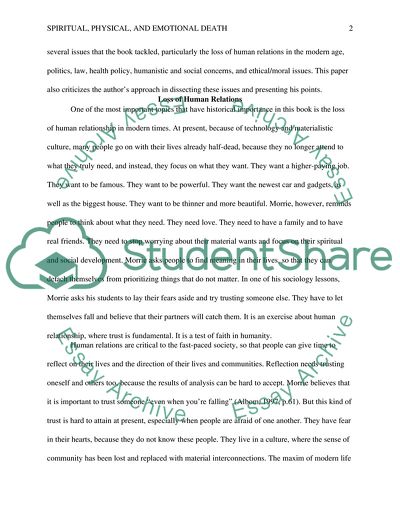Cite this document
(Spiritual, Physical, And Emotional Death In Tuesdays With Morrie Book Report/Review, n.d.)
Spiritual, Physical, And Emotional Death In Tuesdays With Morrie Book Report/Review. https://studentshare.org/literature/1597866-tuesdays-with-morrie-an-old-man-a-young-man-and-lifes-greatest-lesson
Spiritual, Physical, And Emotional Death In Tuesdays With Morrie Book Report/Review. https://studentshare.org/literature/1597866-tuesdays-with-morrie-an-old-man-a-young-man-and-lifes-greatest-lesson
(Spiritual, Physical, And Emotional Death In Tuesdays With Morrie Book Report/Review)
Spiritual, Physical, And Emotional Death In Tuesdays With Morrie Book Report/Review. https://studentshare.org/literature/1597866-tuesdays-with-morrie-an-old-man-a-young-man-and-lifes-greatest-lesson.
Spiritual, Physical, And Emotional Death In Tuesdays With Morrie Book Report/Review. https://studentshare.org/literature/1597866-tuesdays-with-morrie-an-old-man-a-young-man-and-lifes-greatest-lesson.
“Spiritual, Physical, And Emotional Death In Tuesdays With Morrie Book Report/Review”. https://studentshare.org/literature/1597866-tuesdays-with-morrie-an-old-man-a-young-man-and-lifes-greatest-lesson.


